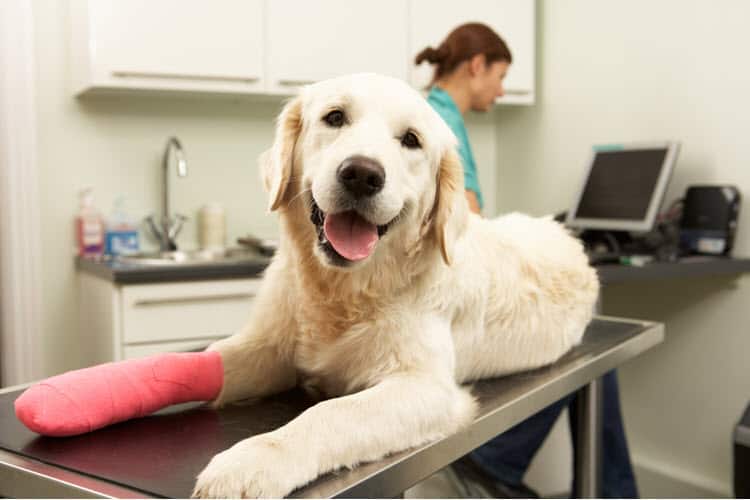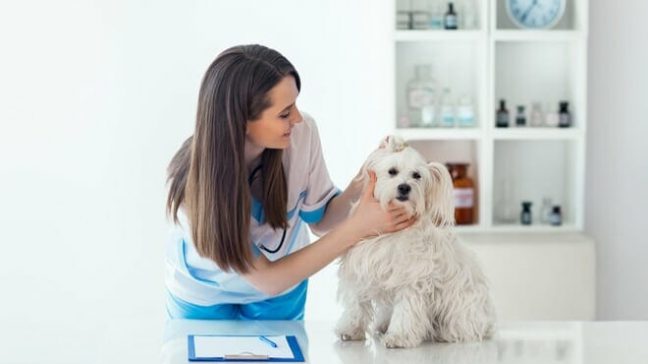Best Pet insurance helps pay for the medical needs of your pet, with specific plans paying up to 90% of your veterinarian bill, meaning that the treatment for your pet was not exempt from coverage or did not exceed your annual cost limit.
Best Pet insurance similarly operates on persons to life insurance. When your pets, dog or cat gets sick or injured, it can either cover expenses or repay you for a substantial part of your medical bills, giving you the peace of mind of ensuring that you can give your pet the treatment it needs. However, choosing the Best Pet insurance will depend on your pet’s medical records and age and budget.
For a reasonable annual premium, most leading Best Pet insurance providers sell pet owners extensive coverage. In the details and fine print, the variations lie. Shop around, do the homework, and then make a well-informed Best Pet insurance decision that is an ideal fit for taking care of your pet and your wallet.
Best Pet insurance provides responsibility for collisions, diseases, disabilities, and regular tests, helping you properly take care of your faithful friend. To see how you can secure your four-legged pal, click on your state!
What’s Best Pet Insurance?
If your furry or non-furry friend needs immediate attention for a broken leg or an injury, pet care is mostly about getting cover to pay the veterinarian bills. Besides, a Best Pet insurance policy would generally include damages protection and damage or theft cover, although this depends on the type of product and coverage standard.

In short, based on the cover amount you choose, the Best Pet insurance policies coverage can be broken down into three different forms. They have hideously confusing names that vary from insurer to insurer, but there are typically three primary cover levels:
- Basic policies strategy: These usually have a recovery period of 12 months and a cumulative payout on each distinct disease. You will no longer be entitled to require for the same condition in the future after you hit either cap.
- Middle-level strategy: These plans cover care for the program’s term up to a maximum sum per illness (usually around £ 3,000), with no time limit for how long your pet will have medication for.
- Comprehensive policies strategy: These have the maximum caps on payouts. It is commonly called permanent cover because while payment caps apply each year, per illness, these are generally reinstated at renewal every year. Even if your pet develops a recurring or chronic disease, these plans will be of best use.
Top 10 Best Pet Insurance Companies

Embrace
Embrace Pet Insurance offers high benefits for oral illnesses: in most jurisdictions, $1,000 per insurance year. Extractions, root canals, crowns, gingivitis and missing, chipped, or fractured teeth are protected by the company.
Basic treatment begins at less than $6 a month for cats and $12 for dogs, and covered services covers complementary treatments, recovery, occupational therapy, medical emergency services, expert care, medical testing (including x-rays and MRIs), hospitalization & surgery, prescription coverage, prosthetics & accessibility devices.
Further support for fitness tests, exercise, hygiene, vaccination, and spay or neuter surgery is offered by the Optional Wellness Rewards package. Up to $650 a year in wellness therapies is refunded under this package.
Petplan
For puppies and kittens, Best Pet insurance company, Petplan Pet Insurance insures dogs starting at six weeks old. You won’t have to think much at all about exclusions regarding pre-existing conditions when you purchase a policy this early on. If signs weren’t present until you bought coverage, Petplan includes certain inherited and congenital disorders.
A package with a $15,000 lifetime cap, $750 deductible, and 70 percent coverage for covered care is restricted to pets aged 10 and over. Comprehensive oral insurance is protected, including all teeth and dental damage and sickness, and their program provides chronic and inherited diseases coverage. If your pet has to be hospitalized, Petplan can even reimburse you up to $1,000 for boarding costs, with no copay or deduction needed.
Trupanion
By having only one package for dogs and cats, with coverage for hip dysplasia and other
genetic diseases such as asthma, thyroid disease, and upper respiratory infections, Trupanion Pet Insurance stands out from the field. For dogs, monthly rates start at $59 and for cats at $32.
The treatment costs of recent, unforeseen illnesses and infections your pet can face, including unidentified conditions such as vomiting, diarrhoea, and cough, are protected by a Trupanion policy. Congenital disorders such as heart failure, cataracts, liver disease, and
nervous system complications are all addressed under a fundamental scheme.
Healthy Paws
Healthy Paws Pet Insurance covers dogs and cats with pet insurance, with 99 percent of claims reviewed in two days. Plans start at $15 for cats and $20 for dogs a month, with no limit on how many statements you will make, making it the greatest deal relative to the competition. One pet care package covering injuries, disorders, procedures, prescription drugs, hospital visits, and emergencies is provided by Safe Paws.
You can attend any approved 24-hour animal veterinary hospital with emergency and specialized medical facilities and see any veterinarian without the need for references, such as ophthalmologists, radiologists, cardiologists, cancer care oncologists, and internal medicine specialists. With a full injury and disease package and unlimited lifetime
compensation, Safe Feet can also protect dogs aged six and over.
ASPCA
Several pet insurance contracts signed by the United States Fire Insurance Corporation are provided by the American Society for the Protection of Cruelty to Animals (ASPCA).
There is no network; in the U.S. or Canada, you can visit any vet. The Full Strategy of ASPCA includes injuries and disorders and also issues of mental well-being.
They also provide accident-only compensation, and by offering two separate horse policies: colic and injuries, or colic, accidents, and diseases, stand out from other pet insurers. With annual rates going as low as $3,000, ASPCA monthly plans are more competitive than most insurers. For covered costs deposited directly or charged via check, you could get 70 to 90 percent refund.
PetFirst
Most pet insurance plans cover injuries and diseases but miss reimbursements for medical treatment. After all, with the wellness treatment bill, you should prepare in advance. The standard care policy of PetFirst Pet Insurance excels precisely because it so broadly describes preventive care. You could purchase a package to include the vaccines, dental treatment, avoidance of parasites, spaying and neutering, and even behavioural training of your cat.
PetLife, a major dental, wellness, and car insurer, owns PetFirst. PetFirst provides three options with a deductible of $250 each and a repayment limit of 80 percent on insured expenditures. A separate annual coverage limit, between $2,000 and $10,000, is set for each plan.
FIGO
Figo has been around for less than 10 years, but for two reasons, market share has increased: convenient access to the internet, plenty of infrastructure, and comprehensive coverage.
FIGO provides three distinct levels of package to select from, both representing genetic, congenital, and chronic disorders. Each policy has its annual cap, from $5,000 to “unlimited.” You should be mindful that certain plans may even have a lifetime limit of $100,000 on the most affordable option, based on the state and age of the pet.
Nationwide
Nationwide Pet Insurance pet insurance corporation of its size, National, has protections for wild species, including certain birds, rodents, small mammals such as hamsters, guinea pigs and rabbits, and even goats and pot-bellied pigs. Any exotic species, such as those falling under the category of venomous or endangered, and any animal not specifically specified on their website, are not exempt.
Plans differ by species, and to find out which choices are open, you can need to call. For dogs and cats, the monthly rates for Nationwide start at $34 for dogs and $18 for cats, and three pet insurance options are available: Whole Pet with Health, Big Veterinary, and Pet Wellness.
Complete coverage and health insurance in one package and 90 percent coverage on vet bills are provided with Whole Pet with Wellness. This package includes injuries and infections, hospitalization and surgeries, medications, dental problems, vaccines, genetic conditions (no waiting period), fitness examinations, avoidance of flea/heartworm, and more.
Pets Best
A new policy on an elderly pet is not written by Pets Best Pet Health Insurance plans; 12 is normally the standard cut-off age for dogs and cats. Pets Best does not have an overall age cap, so your elderly pet will still earn coverage. Yet Dogs Best would not accommodate pre-existing illnesses, like all insurers.
If you have a good pet that gets up there, Pets Best could be an alternative to select from three separate Accident & Disease policies (Essential, Plus, or Elite). And for the normal medical needs of your cat, you can apply two distinct health covers to all three.
Plans go up to a 90 percent repayment rate. Consider Pets Best’s 70% payout rate, which could pay only $9 a month on an accident-only program, if you’re on a budget and are okay for more restricted security.
TrustedPals
TrustedPals delivers the usual protections for dogs and cats, plus a little more, with convenient payment plans at an affordable discount. For pets aged 8 weeks and over, coverage starts, with no overall age limit. There are no chronic condition limitations if they begin after the effective date of the program.
Many pet insurance providers won’t cover pre-existing diseases, and while the pet is already recovering from the disease, the same is true of TrustedPals. However, even after you cancel back your contract, your pet is completely healed, TrustedPals will protect your illness if it reoccurs. As an add-on covering annual vet tests, vaccines, preventive dental
cleaning, and spaying or neutering, TrustedPals also provides a wellness package.
Basic Caring Tips for Pets
COVID-19 and Veterinary Treatment
All sorts of pet facilities have been in high demand since the coronavirus pandemic, mainly veterinarian services. They prefer to rely on activities they may have forgotten previously, with more and more individuals living from home and spending more time with their dogs. So when are you going to take your cat to the vet?
Another concern that may alarm pet owners is whether the coronavirus can be contaminated and spread by their animal companions. While animal cases and COVID-19-related deaths have occurred, the CDC reports no indication that pets will dramatically transmit the virus. It is doubtful that animal-to-human transmission may occur.
Nevertheless, whether you have ever got a positive diagnosis or are suspected of being contaminated, special measures should be taken. The general rule is to handle your pet as a human does, preserve space wherever possible and wear a face mask to discourage transmission. If necessary, when you’re infected, make another human take care of the cat. While the odds of spreading the virus are very slim, being organized doesn’t hurt.


